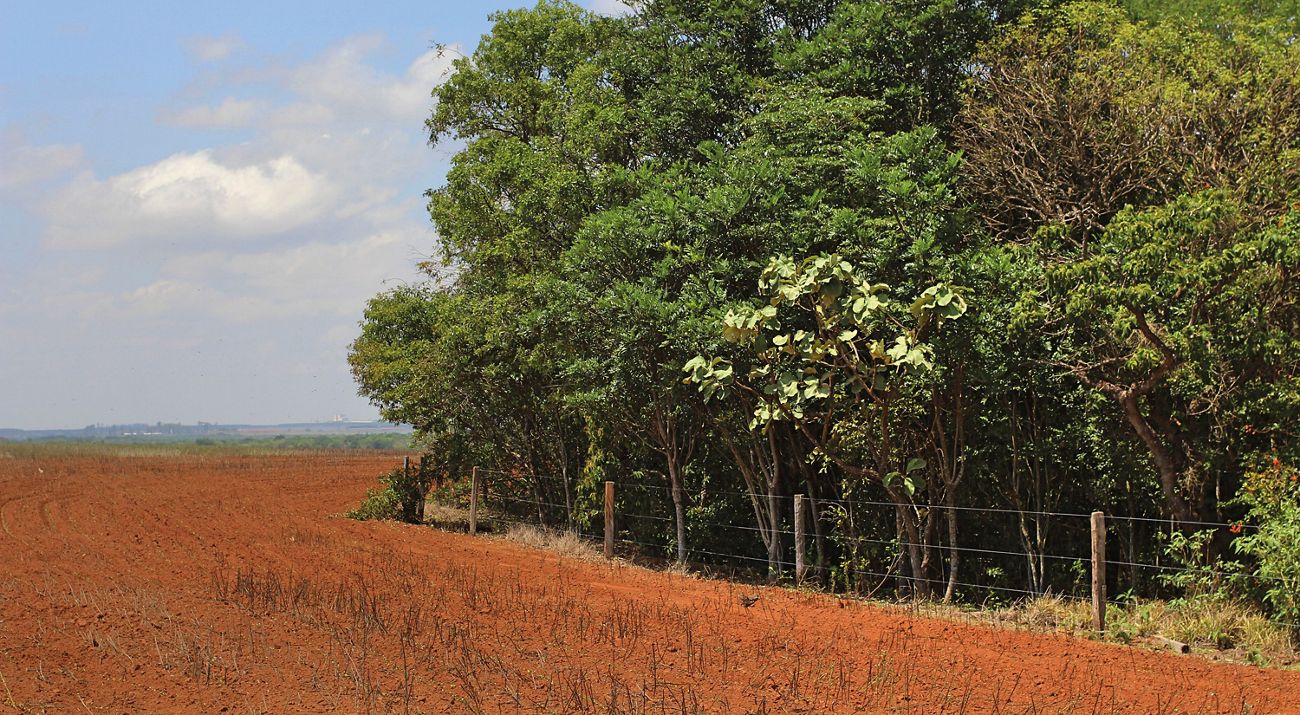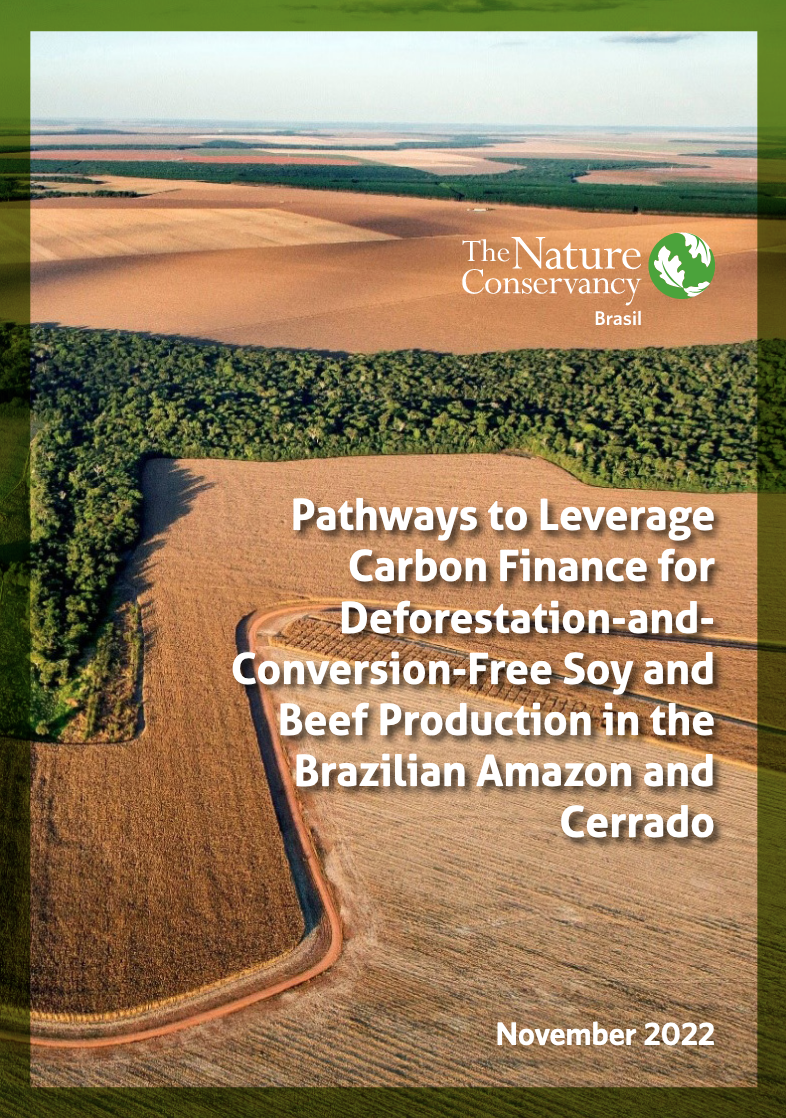TNC launches study on carbon potential in the Amazon and Cerrado and its role in soy and cattle ranching financing
Strategies that generate emissions reduction and carbon sequestration can be monetized for the rural producer and accelerate implementation.
In the context of important debates and expectations about the rules and functioning of the carbon market that were part of the agenda of world leaders at COP27, The Nature Conservancy (TNC) Brazil releases a study on the subject.
Entitled "Pathways to Leverage carbon finance for deforestation-and-conversion-free soy and beef production in the Brazilian Amazon and Cerrado" the study evaluated different sustainable agriculture strategies, carbon benefits and carbon monetization mechanisms to identify the most promising options for the Amazon and Cerrado.
According to Fernanda Rocha, Carbon Finance Specialist at TNC Brazil, the agricultural sector offers one of the greatest opportunities for reducing greenhouse gas (GHG) emissions through a combination of factors that include halting deforestation, restoring native vegetation, and implementing regenerative agriculture practices. The mitigation potential of each of these pathways, the technical feasibility of the carbon monetization instrument, and the associated implementation costs were analyzed.
"In terms of benefits, avoiding deforestation proved to be the most cost-effective means of reducing emissions on a large scale. Not only because of the large potential per hectare, but also because of the existence of methodologies and technical feasibility of implementation. The restoration of native vegetation has a high mitigation potential and the recovery of pastures for soybeans production and integrated crop-livestock systems generate tangible soil carbon benefits and have potential for scale. "The strategies to increase soil carbon through better agricultural practices should be pursued, but it is important to associate them with the forest component for better viability in carbon monetization," explains the specialist.
The study recommends efforts to accelerate investment and implementation of strategies for regenerative agriculture with climate benefits:
- Greater focus should be placed on agricultural initiatives, within jurisdictional and national climate programs, to support and reward projects that encourage avoided conversion of natural vegetation, including expansion of regenerative agriculture into grasslands and sustainable livestock intensification.
- Greater effort should be invested to create grouped carbon projects to encourage farmers not to expand production over areas of native vegetation.
- Companies and farmers can continue to measure and monetize soil carbon benefits, but should consider including measures to avoid deforestation and restore native vegetation in their programs to increase the carbon impact and cost-effectiveness of monetizing the benefits. There are still methodological and soil carbon monitoring challenges that must be overcome in the coming years.
- Restoration of native vegetation must be expanded, and to make it more economically attractive, the initial investment required can be supported by integrating restoration into programs with strong underlying economics-such as agroforestry systems and sustainable livestock intensification. Restoration is often necessary for farmers in these programs to comply with the Forest Code.
It is necessary to clarify positive and negative aspects of monetization options, such as offsets under the voluntary carbon market, Scope 3 emission reduction programs (indirect emissions that occur in the value chain of companies), and jurisdictional approaches, when linking them to conservation strategies. By directing agricultural expansion to already open areas, promoting sustainable intensification of cattle farming, acting to protect and restore native vegetation, carbon monetization is an opportunity to leverage resources to strengthen deforestation-free soy and meat production.
"The study conducted by TNC evaluated the potential and obstacles of these different strategies and monetization paths in order to identify the most promising opportunities for measuring and monetizing carbon to accelerate and expand investment for deforestation-free soy and meat production, contributing to the adoption of sustainable practices in the Cerrado and the Brazilian Amazon," concludes Fernanda.
Download
Donwload the study "Pathways to leverage carbon finance for deforestation and conversion-free soy and beef production in Amazon and Cerrado"
DOWNLOAD Baixe em português
